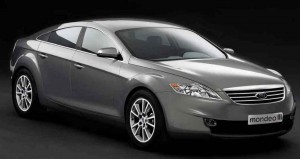
The Belgian plant is currently scheduled to get the next-generation Ford Mondeo - but that may not happen according to reports suggesting it will close.
Ford Motor Co. would like to close its underutilized plant in Genk, Belgium, a move that could help the automaker narrow European losses that are expected to reach about $1 billion this year.
If the widespread reports from Europe prove accurate, Ford could take a crucial step in a Continental auto industry buried under the weight of excess capacity contributing to industry-wide losses that could approach or even exceed $10 billion this year.
Analysts and industry officials have fretted that while the issue is widely understood manufacturers have been reluctant to take the necessary steps, especially when it comes to plant closings.
“Nobody wants to go first,” Fiat/Chrysler CEO Sergio Marchionne said during an interview over the summer.
Ford may break the logjam. The maker reportedly has asked for a meeting with union leaders representing the 4,300 hourly workers at the Genk plant, according to Belgium’s business paper De Tijd. For the moment, however, it is not revealing what will be discussed at that Wednesday meeting.
But analysts warn that Ford needs to consolidate European production to raise capacity utilization at other facilities and would likely target Genk because it is its highest-cost operation on the continent.
The maker’s European sales have been down sharply during the first nine months of 2012 and losses during the April – June quarter alone totaled $404 million. Ford has signaled the likelihood that losses for the full year will reach or exceed $1 billion.
It is far from alone. General Motors is expected to lose between $1.5 billion and $2 billion. Fiat is running deep in the red and turning to Chrysler – which it bailed out after the U.S. maker’s 2009 bankruptcy – to help prop up their Euro-Asian alliance. PSA Peugeot Citroen is hemorrhaging cash so rapidly it is expected to seek a bailout from the French government.
But that underscores the challenges manufacturers face trying to deal with the nagging and endemic issue of over-capacity. The Socialist government that regained power in France after recent elections has made it clear it will resist any plant closings and would clearly not assist Peugeot if it went ahead with such a move.
Indeed, most European national governments have taken the same basic stance, which is why only a handful of assembly lines have been shuttered – even though most analysts agree that there are perhaps eight such excess plants contributing to the industry’s worsening problems.
But the European economy is deep in the doldrums, with cuts in government spending leading to recessions in many southern markets, notably Greece, Italy and Spain, and even the economic powerhouse of Germany seeing sharp cuts in consumer spending on high-ticket items like automobiles.
So, only a rare few makers are able to prop up their balance sheets, notably Volkswagen AG which is nonetheless counting on overseas sales – especially in China and Brazil – to offset declining European demand.
Critics – notably including Fiat’s Marchionne – have accused VW of trying to block more aggressive action in Europe, particularly anything that might be organized by the EU on a continent-wide level. The issue came to a head – and nearly blows – during a meeting of the European automotive trade group ACEA at the Paris Motor Show late last month.
The Fiat CEO had gotten locked into a war of words descending into name-calling with his Volkswagen AG counterpart Martin Winterkorn. The two men emerged from their meeting with tight smiles but insisting they had worked over their differences. But in the weeks since there have been few signs of any breakthrough.
The situation in Europe is “unsustainable,” warned Susan Docherty, European head of General Motors Chevrolet and Cadillac brands. Chevy is, in fact, one of the few marques actually gaining share in the market – albeit from a small base – but Opel’s sales are collapsing.
Led by GM Vice Chairman Steve Girsky, the German-based subsidiary is desperately working up a turnaround plan but government limits combined with the power of trade union IG Metall mean that even for Opel a planned German plant closing won’t occur until at least 2014.
One of the few other factories to close in recent years was a Fiat plant on Sicily that was built almost solely for political purposes. But Marchionne and his allies are hoping that once another major maker or two acknowledge the depth of the problem and move to reduce capacity it may encourage other manufacturers to follow – and get governments and unions, however reluctant, to go along.
